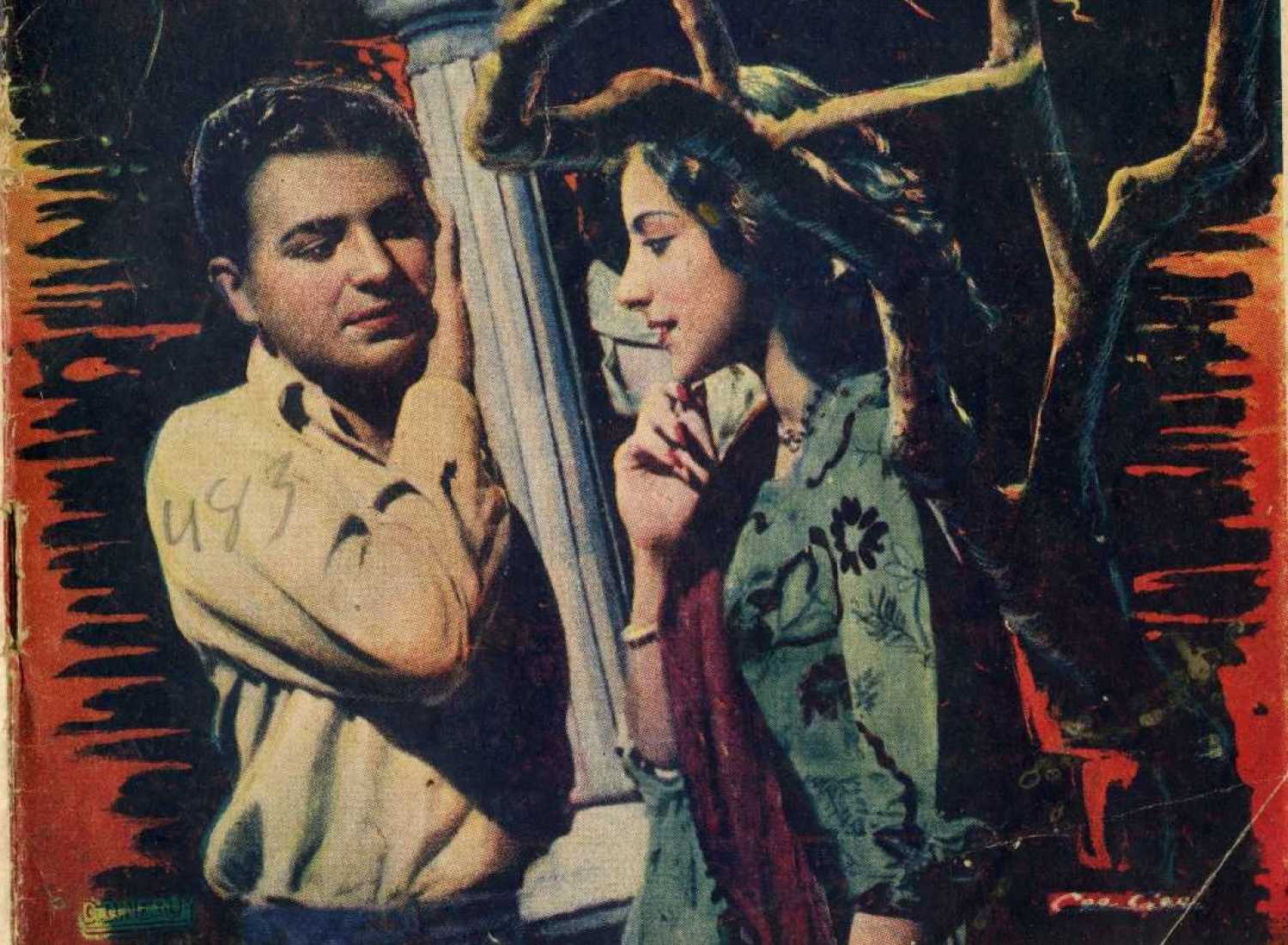Celebrating 71 years of India's independence, we take a look at some early Hindi films that dealt with the freedom struggle and the birth of the nation. First in the series is ML Anand's Lahore (1949), one of the earliest portrayals of gendered violence during Partition.
'Beti zyada pyaari hai': The progressive vision in ML Anand’s Lahore (1949)
New Delhi - 12 Aug 2018 17:00 IST
Updated : 13 Aug 2018 10:06 IST


Sukhpreet Kahlon
ML Anand’s social melodrama Lahore was one of the earliest attempts to depict the Partition of India on celluloid.
At the time of its release, the film was appreciated for its depiction of the reality of Partition and its aftermath.
One review described the film as being “the most potent chronicler of day-to-day life” while another by the acclaimed magazine Sound said, “Inspired by a historic speech made by the deputy prime minister [Sardar Vallabhbhai Patel], Lahore is one of the most significant films ever produced and tells a story as tender as any ever told since the movies began to talk.”
The film contextualized the popular theme of separated lovers within the framework of the partition of the country while highlighting the plight of women during the riots.
Based on a true story, the film opens with shots of the streets of Lahore, “Punjab ka dil” (the heart of Punjab), as we are taken through a nostalgic view of the cosmopolitan city.
The story is about two families in Lahore and their intertwined fates. Chaman (Karan Dewan) is an ideal son, desiring to complete his studies, get a good job and take care of his family, which includes a drunken lout of an elder brother Dev (Om Prakash), a disabled younger brother, a hapless mother (Pratima Devi) and a father who is driven to theft out of sheer helplessness.
Chaman is also in love with Leelo (Nargis) and they plan to marry, just as soon as his family situation stabilizes.
After Chaman deals with more than his fair share of problems, his certain betrothal to Leelo falls into jeopardy.
In the midst of it all, the newspaper headlines scream ‘India Partitioned’, ‘Dawn of Freedom’, and the lives of ordinary people are forever altered as riots break out and families are torn apart overnight.
Leelo gets left behind in Lahore where she is abducted and confined against her will by a Muslim family. Chaman is heart-broken and wants to go back to Lahore to find Leelo despite the protestations by people around him. But in a truly remarkable moment, the young man is supported by his mother who urges him to find her by risking his own life saying, “Beti zyada pyaari hai [The daughter is dearer]."
Lahore addresses the issue of abducted women, drawing attention to the gendered violence during the riots when women’s bodies were ravaged in the name of religious or national pride.
Women were doubly damned. If left alive, they were forced to accept a caged life offered by their abductors, if any, or rejected by their original families as ‘fallen women’. In the film, Leelo (renamed Laila) is a bird in cage, living as a stranger’s partner, along with his mother.
There are other depictions of the fate of women during the riots as Radha (Kuldip Kaur) is pregnant with the child of her rapist while Salma is saved from the brink of being violated by Chaman’s friend, Ramesh.
When Ramesh refuses to accept his beloved Radha, labelling her a ‘fallen woman’, she poignantly says of her defiler, “Woh tumhara hi bhai tha, jiske dil mei daya na thi, aankh mei sharam na thi [He was your brother, who neither had compassion in his heart nor shame in his eyes]."
As Chaman reaches Leelo, she finds no succour in the possibility of getting her old life back and despondently comments on her misery, “Main toh ek mitti ka khilona hoon, jis se taqdeer apna dil behla rahi hai [I am just a toy made of clay for fate to amuse itself with]", as she is convinced that society will not accept a 'defiled' woman.
Even Dev echoes the judgement of society and labels Leelo a ‘fallen woman’, citing faith and religion to urge his brother to forget her. But as an exemplar of a progressive Hindu, Chaman says, “Jab dharm ke neeyam banaye gaye the, uss waqt mazhab ke naam par fasaad nahin hote the, agwah ki hui ladkiyaan nahin thi [When the rules of faith were written, there were no riots in the name of religion, no women were abducted]," and urges for a change in people’s mindset in the face of the grossly altered reality.
Several films that deal with Partition take up this issue of abducted women. Lahore was their forerunner in doing so, yet the film is largely forgotten today.
Nargis’s Leelo's hesitation in accompanying Chaman back to her family is heart-wrenching as she has internalized the notion of her impurity. Karan Dewan's Chaman is less impressive as the conscience and moral compass of the film, but the evocative dialogues by Rajinder Krishan effectively capture the pulse of the time and the dilemmas of the characters.
The song 'Bhagwan Kahan Hai' contemplates the sheer bestiality of the violence when man fell upon man, in a seemingly godless world. In contemporary times, it is imperative to look back upon the bloodshed that accompanied the rupture of our nation, the effects of which are being felt till today.
Related topics
Independence Day




